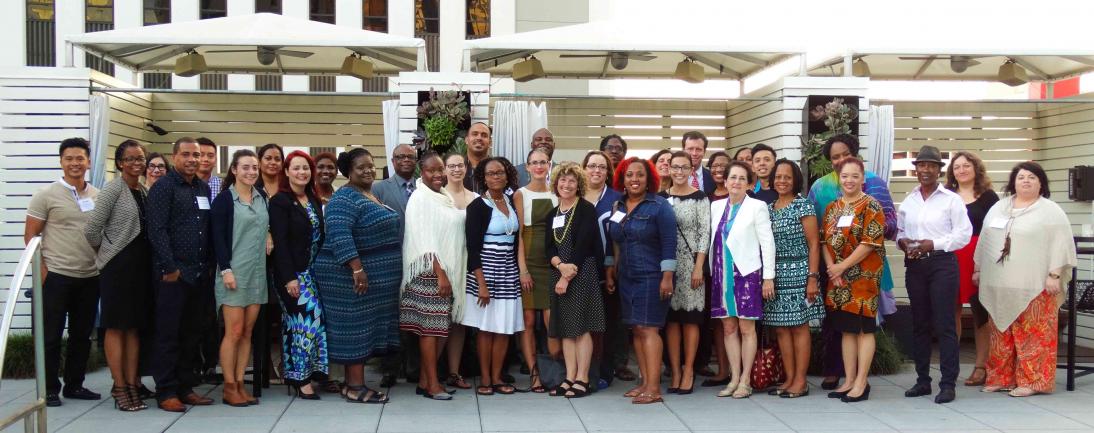Building High-Impact Organizations of Color in Miami and New Orleans

Posted in News Story
On July 19, 2017, the Center for Public & Nonprofit Leadership successfully concluded the Building High-Impact Organizations of Color program with nonprofit leaders from Miami and New Orleans. This nine-month training program was conducted in partnership with Prosperity Now and is funded by JPMorgan Chase.
Center Director, Kathy Kretman, reflected “It was humbling to work with these nonprofit leaders, who are grounded in the community, everyday addressing the intractable problems that most of us only talk about. If we can contribute to their efforts by providing new resources and tools, then we are fulfilling our Center’s goals. Yet, there is so much more that we can do, and I am grateful for the partnership with Prosperity Now and JP Morgan Chase that allows us to continue to provide leadership and organizational capacity building support to nonprofit leaders of color.”
The Center developed the training model with significant input from the participating community-based organizations. Through an in-depth needs assessment utilizing surveys and focus groups, the nonprofit leaders shared specific areas in which they and their organizations needed the greatest support. Based on this information, the Center created a program that included cohort-based in-person trainings, webinars, and a capstone project with coaching support.
The training focused on strengthening nonprofit leadership at three levels—the individual, organization, and community. Session topics ranged from individual leadership to resource and fund development to advocacy. Tuan Nguyen, executive director of MQVN Community Development Corporation in New Orleans, noted: “The Georgetown trainings have given me a better understanding of fund development, marketing, and the overall power of communities. Compared to many other similar trainings I have participated in, the Georgetown sessions were fun and productive with high caliber faculty.”
Realizing that the governance and board effectiveness information is best shared with board members directly, in order to ensure their buy-in and subsequent involvement, the nonprofit staff leaders asked the Center to provide additional training for the board members themselves. Day-long sessions were held in Miami and New Orleans for the board leaders of the two cohorts. Board members and the executive directors who attended commented that the session day was uniquely effective, well beyond their expectations, and full of practical and important guidance for their boards. They all agreed that their boards are now better equipped to provide more focused leadership and governance to their organizations.
The nonprofit leaders then applied their new knowledge and tools to develop capstone projects for their organizations, with expert coaching from our faculty. This one-on-one support helped the organizations develop solid strategies for advancing their organizations. The capstone projects covered a variety of different topics including:
- fund development plans to diversify revenue sources including individual donor development,
- a business plan for program expansion,
- leadership development and succession planning for organizations whose founders are planning transitions,
- board restructuring to bring in new energy and talent, and
- new strategic communication plans adapted for the current political climate.
The capstone presentations demonstrated the amount of effort that the nonprofit leaders invested in them—on average 80 hours per project. Through the presentations, the cohort participants were able to learn from each other’s experiences and offer advice and resources for next steps. “It was exciting to see a leader from Miami share a enterprise development model with a leader from New Orleans who thought it could also be used in his community,” noted Luisa Boyarski, Assistant Director of the Center. “One important outcome of this program is the community of practice that has developed among the participants that will continue long after the program ends.”
